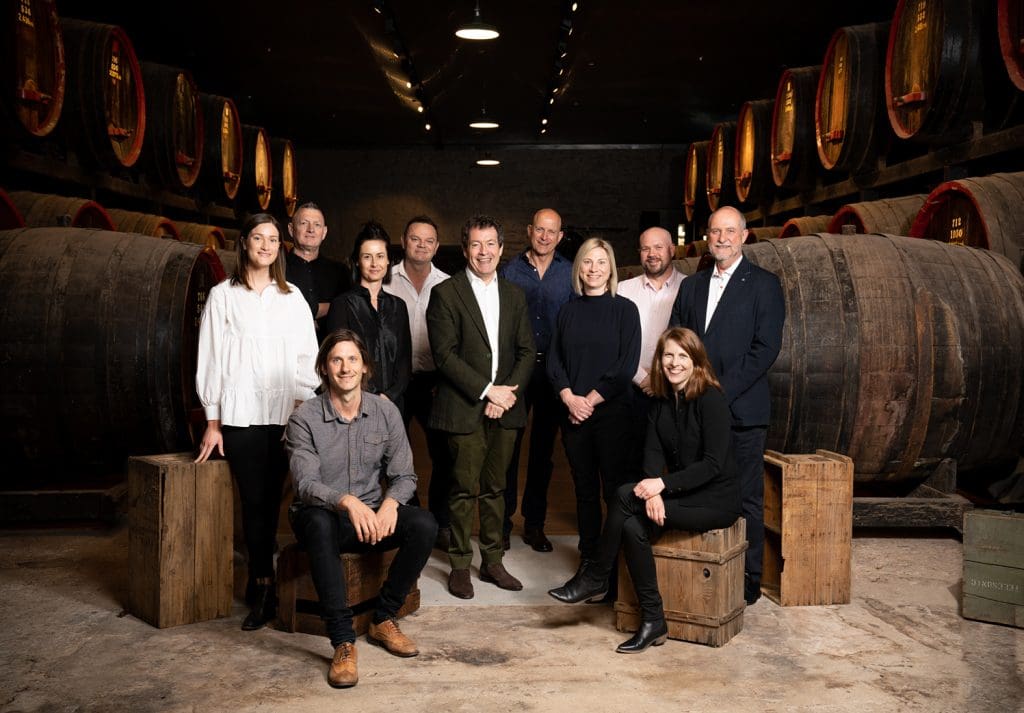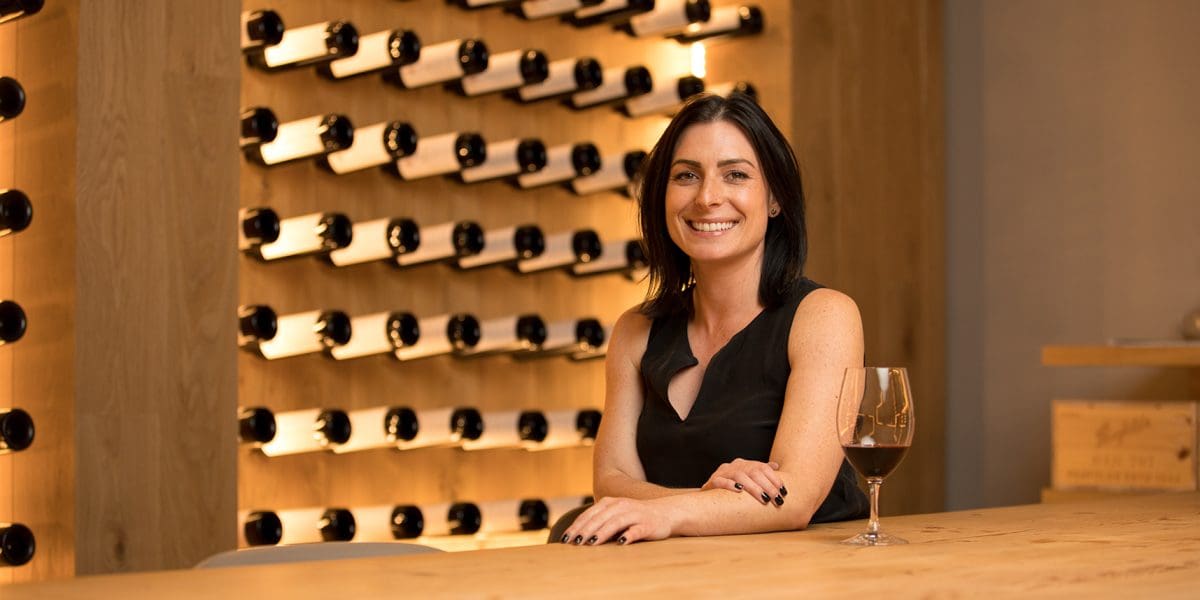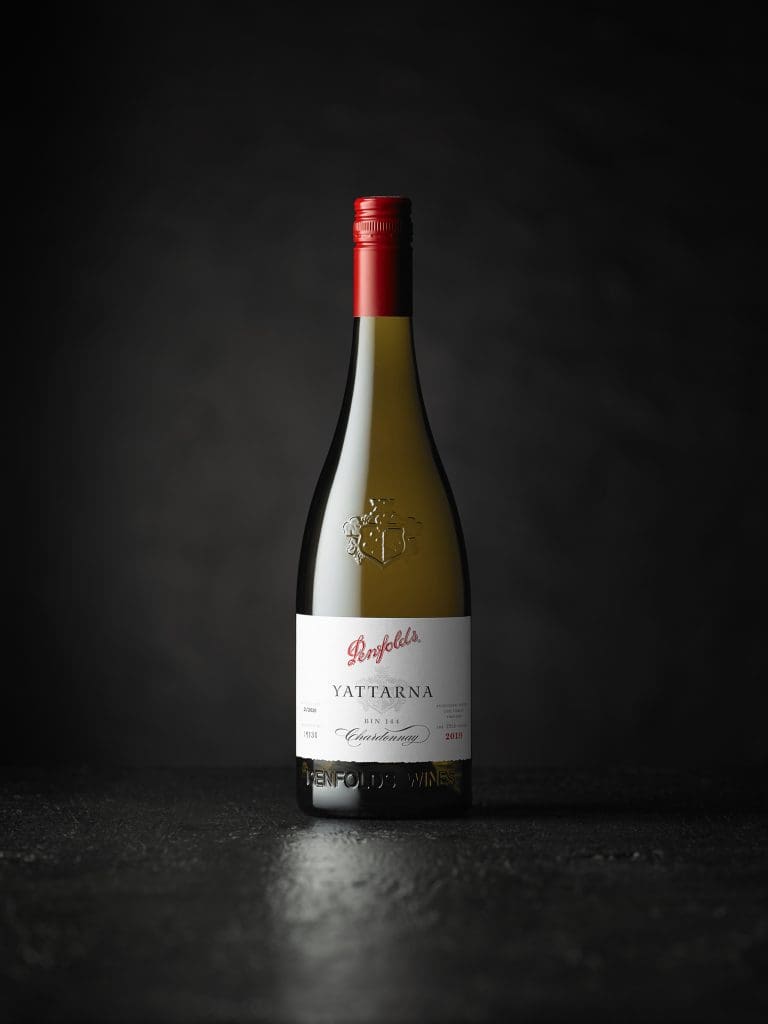Future Vintage
Over her 15 year career at Penfolds, Zöe Warrington has become one of Australasia’s most trusted wine experts. With a role that touches all aspects of the famous Penfolds brand and winemaking, Zöe is also a caretaker of the history of one the region’s oldest winemakers. Zöe shares with us her tips for success in the industry and her favourite vintages and varietals.
What does a Penfolds Australian Ambassador do?
The ambassador role crosses over many different functions. I sit under the marketing banner of our brand, but cross over to training and education for our hospitality and sommelier teams, our sales teams globally, and our distributors. I educate them on our wines, our history and how to talk about them. I also host trade, media and influencers.
I’m also an extension of the winemaking and viticulture teams. The most important job for our winemakers is to make the wine so they can’t necessarily be out in the market all the time. So, my role as an ambassador is to speak on their behalf, whether it be to the media, consumers or customers.
I cross over lots of different areas and wear a lot of different hats which makes it a really versatile and fun job. I’ve been with Penfolds for 11 years now and I still feel like a bit of a junior!
It seems like you are the glue between everything.
Yes, that’s actually a really good way of looking at it. Here in Australia, there’s Global Ambassador Jamie Sach and myself and we support our regional teams and our global teams – alongside a handful of Penfolds ambassadors globally.
I would definitely say we are the glue that binds all areas together – for the winemakers, for our PR and marketing teams, sales…. for anyone who needs to know anything about Penfolds.
Is there a particular part of the process that you’re drawn to?
I like all of it because the role is so diverse. It’s nice to be out talking and hosting our customers and consumers because they have a different perspective on the brand, our history and our wines to what we do because we are living it and breathing it every day.
With a brand like Penfolds, there is so much that people feel is special about the brand. They always remember a Penfolds moment; whether they remember their first Grange, or visiting our beautiful properties.
Post-covid, it’s really exciting to be back into the consumer-facing side of things – it really humbles you for what we actually do. I love working with our winemaking team because they have such an extraordinary job and an extraordinary responsibility; we have 178 years of wine-making tradition and heritage.
They make some of the most sought-after Australian wines around the globe. They’ve got a legacy to hold up for the next generation of winemakers, so hearing and harnessing their passion for what they do is also really fun.
You said you still feel like a junior, and I know you were talking about the fact that there is still so much to learn but it’s interesting when you say that within the context of a 178-year-old company. Does the age of the company change your context?
There’s probably a few of us and a few of the winemakers that feel like they’re still a “junior” in the team. We quite often refer to our winemakers past and present as having long apprenticeships! Some of our past winemakers worked at Penfolds for their entire careers and have officially retired from winemaking, but they still consult every year.
We have a winemaker called John Bird who started with Penfolds in 1960, and worked alongside our first Chief Winemaker Max Schubert. John is still at the winery every vintage. It’s those stories and that experience and expertise that gets passed down to the next generation of winemakers that makes Penfolds special.
It’s essentially the same for an ambassador, even though we’re not hands-on making the wine, we still have to know the ins and outs of every wine – every story, highlights of each vintage – so we can confidently compare vintages that span decades.
I’ve been with Penfolds for 11 years – our Global Ambassador has been on board close to 23 years. I think the youngest tenure of our wine-making team is 15 years. The longest is about 38 years. It’s pretty extraordinary. So yes, when you think of our 178 year history, I’ve still got a long way to go.
Has that influenced your general outlook on the timespan of life?
A lot of people have asked me over the years, where do you see yourself in five years’ time? Because my role is so diverse and I get the opportunity to travel the world and work with incredible quality wines, I don’t know where my future lies. But I think definitely if I look back over 10 years ago, would I have ever thought I’d be here? Probably not.
I think it has shaped a lot of who I am today. There are a lot of people here in South Australia who know me as Zöe from Penfolds. When you do become very passionate about your career and your work, it does become a part of your life. Penfolds is ingrained in me.
Do you take feedback from the public-facing side of things back to the winemakers?
Oh, yes! The winemakers, for the most part, are science nerds, but they’re making really delicious wines and they want to experiment as scientists – they’re curious, they want to try new things and they want to do new things. We have pushed the boundaries a little bit with some styles and bought some styles back that haven’t been made since the 1950s, like Rosé, for example.
I share a lot of feedback with the winemakers because I am out there with the public and I can see what people want to drink, what they’re curious about, any trends. I think we are quite traditional for the most part, which has probably played into why we are so popular around the world.

Within the Penfolds portfolio we have multiple ranges – the Cellar Reserve range acts as a bit of a winemaker’s playground, where some of these really fun ideas can come out. The winemakers experiment every year.
I know that origin is a really big part of wine, but can you talk about how South Australia and Adelaide have shaped you?
It’s an interesting question because I will call myself an Adelaide girl for the rest of my life. I was born here, but I grew up in Papua New Guinea for the first formative years of my life and then in Queensland. My father was a pilot, so we’ve travelled all over the world, but there is something really special about coming home to Adelaide.
I am very passionate about what we have to offer. It’s a beautiful city, we have incredible projects, not just from wine regions, but also from our seafood to our agriculture. Down in the Limestone Coast, we’ve got some beautiful farms down there, as well as the Adelaide Hills, in terms of fresh produce, fruits, vegetables.
For me, with the role that I have, which is travelling around and meeting new people, there is something really special and comfortable about coming home to South Australia.
I would probably call myself a South Australian girl, but a well-travelled one! I think a lot of that has actually shaped me, but I’m very proud to call myself South Australian. It’s amazing how many people are moving here to South Australia because of the lifestyle, because of the incredible things that you can do. You can get to the beach in half an hour from the city. You can get to the Adelaide Hills in half an hour, you can get to McLaren Vale in 40 minutes. You can get to the Barossa in an hour. There is just so much to do here and so much to try.
Do you draw on your upbringing in Papua New Guinea nowadays? I imagine that it would’ve taught you to have been really open and quite sensitive to differences and ideas and people.
I think you find with a lot of people who’ve grown up in families where they’ve moved around a lot, it shapes you to be more open to different cultures, open to different ways of life, and probably makes you a little bit more curious. For me, I think travel and experience are just part of my DNA.
A lot of people will say they love to travel, but they hate flying –because I was on a plane for so many years of my younger life with my dad, I actually love the experience of flying. I think that’s almost half the exciting part of getting to a final destination and meeting new people.
I love travelling by myself too – I don’t have any problems with that. I love meeting new people and experiencing new things.
Would you have any advice for any potential Penfolds ambassadors down the track? Any personality traits that are important?
It’s important to be open to possibilities and to exhibit self-belief. Personally, I’ve really had to work on my public speaking skills for instance, but I put myself out there and worked on it!
Have fun, believe in yourself and let your passion come through. That’s the most important thing. I think everything else comes to you. The more experience that you get, the more people you speak to, the diversity of perspective that you come across, that’ll help shape you as an ambassador in the future. Be open and passionate and have fun.
The public speaking thing is really big, right? There are lots of studies to say that most of us would prefer to die than have to talk in public. Have you got any basic action points?
Know your product! If you’re in an ambassador role you need to be knowledgeable in your specific field.
In the early days, I think I over-prepared myself a lot to make sure that I was hitting all the points. And that actually got me even more nervous than just taking a few deep breaths and figuring out what your first minute of talk is going to be, which usually is the history.
That’s the one thing I always do – prepare my opening line and then the rest will fall into place from there. I almost wing it in a sense, but I know my product, I know what I’m showing for that night and I like to let things organically flow however they will for that event.
Can you talk about any particular vintages that you’re really proud of?
I think in more recent years, I would probably say 2017 and 2018 at this point, from a Chardonnay perspective and then 2021 (our most recent vintage). Our Rieslings are stunning from 2021. When those Chardonnays start to come through (they haven’t been released yet), I think we’ve got some exciting wines to be showing to the public in about a year’s time.
Can you talk a little bit about the process behind the Yattarna Chardonnay?
The winemakers are quite humble about how they go about this, but the project to have a flagship white wine has been on the cards for our wine-making team since the 1970s. There’s always been this pursuit of having a white wine that would stand alongside Grange. It took until the mid-1990s for this project to really kick-off. It was quite an incredible one because there was a lot of trial work that went behind the Yattarna, which is actually its bin number.
The bin number for Yattarna is 144 and if I just talk about Yattarna as a name, it is an indigenous word which means ‘little by little’ or gradually. They decided to list the amount of trial work that the winemakers had done – they had 144 trials over a few years of different styles of wine before they were happy to land on one. It was actually the Australian media at the time that dubbed it the name ‘White Grange’.
Even to this day, it was one of the most anticipated wine releases in Australia of the time in the 1990s. Today, it’s affectionately known as the White Grange and the trial work took place to make sure that we had an exceptional white wine that would stand alongside Grange. Using that philosophy, the evolution of Yattarna has gone from being a hundred percent Adelaide Hills, like the Reserve Bin A. And then over a decade we incorporated Tasmania grapes, (which is where the lion’s share of the sourcing comes from now) and Yattarna has evolved to be a multi-region wine, just like Grange.
Our winemakers don’t discriminate where the fruit comes from, but it must be the absolute best quality fruit that we can find in any given vintage. Today, Yattarna is a wine that you could quite comfortably cellar for a couple of decades with ease, if you wanted to, which I think is quite an extraordinary thing, coming from what Australian chardonnay used to look like in the ‘80s and early ‘90s.
About a month ago, I was fortunate enough to look at some of the ‘05s and ‘06s and ‘07s of Yattarna and in the glass they looked as fresh as what our current releases do today. Our white winemaker, Kym Schroeder, has done an incredible job since he’s been at the helm of our white wines; he’s had 37 years as a winemaker with Penfolds. He’d been making red wines before he started making white wines, but he has taken our chardonnays and our rieslings to another level.
There is a lot of trial work that goes on – our winemakers may evolve styles that we’ve already got, use new equipment, that could result in something that will eventually be a one-off or be part of the family, for the most part, every vintage.
What is it that enables a wine to be able to be cellared for longer?
First and foremost, quality. You have to have good fruit to be able to make a wine that will withstand cellar time. Also, natural acidity and not too high in alcohol, you want to have that nice balance between alcohol and acidity to be able to cellar. These days, it’s very accepted across the globe that white wines under screw caps keep their freshness a lot longer.
As I said, the ‘05s, ‘06s and ‘07s that we were tasting of the Yattarna look as fresh as what the current release does now and I think that’s due to having that under screw cap and having it in the right cellaring condition. You want to make sure that you are storing your wines correctly, that also helps with that longevity.
There are plenty of other producers that also make world-class chardonnays and rieslings that will go the distance. But first and foremost, you have to have excellent quality fruit. That’s your first stop.
Anything in your cellar that you’re particularly proud of and that you struggle, psychologically, with not opening?
From Penfolds, probably Reserve Bin A Chardonnay, a hundred percent. A lot of people do try to ask me what my favourite Penfolds wine is and it’s a very hard question to answer because you could almost pick one in each tier. It depends on the time of year, on what you might be eating or who you’re with.
But if I flip the question and if someone said to me, you could only drink one Penfolds wine for the rest of your life, what would it be? I would probably, without thinking, say Reserve Bin A Chardonnay. It’s a wine I can’t live without.
The concept of 144 iterations seems like a beautiful metaphor for lots of other things in life. Does it give you a solace that you can take things day by day and little steps build-up to being quite a big impact at the end of it?
The role that I’ve had as an ambassador with Penfolds, if I talk about my evolution to where I am from where I started, absolutely. I think life is all about learning. You take one path and it’ll lead you to another path, whether that’s a quick one to where you need to go, or you make a lot of stops and wrong turns along the way. I don’t think there’s anything that is one wrong thing, because it ends up leading you to where you are.
As I said, with our 178 years of history, we’re still learning new things. Every year we discover new things about Penfolds. I think that’s the key to my role and my life, it has always been just to take it day by day. I’m not in a rush to get to the end of wherever I’m going, I’m enjoying the ride, but I think taking a lot of experience along the way helps to shape what might be next down the road.
What’s the best piece of advice you’ve been given along the way?
The best advice I’ve been given is just to believe in myself. At the end of the day, I think we are all very critical of ourselves, of where we should be, where we’re not. But I think there is a reason we’re all in our roles and the best advice I have been given is just to believe in myself and believe that I deserve to be where I am.

